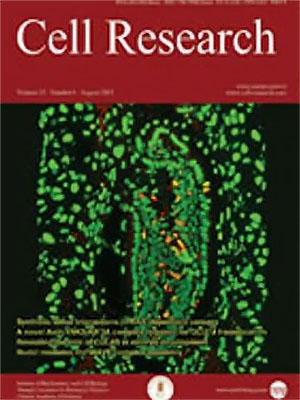
Volume 12, No 3-4, Sep 2002
ISSN: 1001-0602
EISSN: 1748-7838 2018
impact factor 17.848*
(Clarivate Analytics, 2019)
Volume 12 Issue 3-4, September 2002: 199-206
ORIGINAL ARTICLES
A novel ubiquitin carboxyl terminal hydrolase is involved in toad oocyte maturation
Zhao Gui SUN1, 2, 3,* , Wei Hua KONG2,*, Yan Jun ZHANG2, Shan YAN1, Ji Ning LU1, Zheng GU1, Feng LIN1, Jia Ke TSO1,**
1National Laboratory of Contraceptives and Devices Research, Shanghai Institute of Planned Parenthood Research, Shanghai 200032, China
2College of Life Science, Shandong University, Ji'nan 250100, China
3Shandong University of Traditional Chinese Medicine, Ji'nan 250014, China
Correspondence:
p28, a 28kD protein from toad (Bufo bufo gargarizans) oocytes, was identified by using p13
suc1-agarose affinity chromatography. Sequence homology analysis of the full-length cDNA of p28(Gene Bank accession number: AF 314091) indicated that it encodes a protein containing 224 amino-acids with about 55% identities and more than 70% positives to human, rat or mouse UCH-L1, and contains homological functional domains of UCH family. Anti-p28 monoclonal antibody, on injecting into the oocytes, could inhibit the progesterone-induced resumption of meiotic division in a dose-dependent manner. The recombinant protein p28 showed similar SDS/PAGE behaviors to the native one, and promoted ubiquitin ethyl ester hydrolysis, a classical catalytic reaction for ubiquitin carboxyl terminal hydrolases (UCHs). The results in this paper reveal that a novel protein, p28, exists in the toad oocytes, is a UCH L1 homolog, was engaged in the process of progesterone-induced oocyte maturation possibly through an involvement in protein turnover and degradation.
FULL TEXT | PDF
Browse 2546


